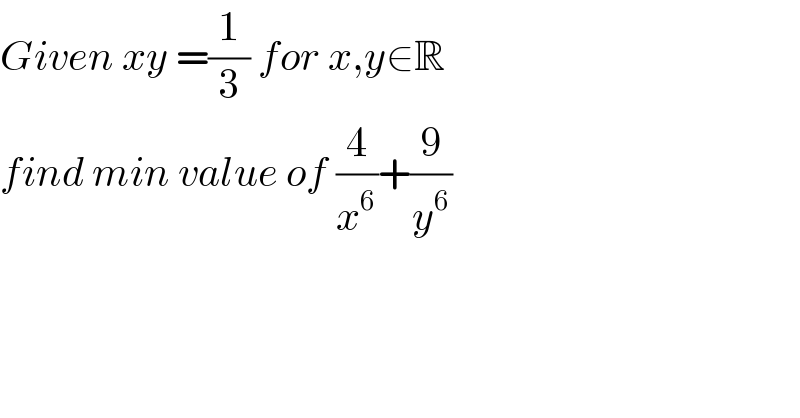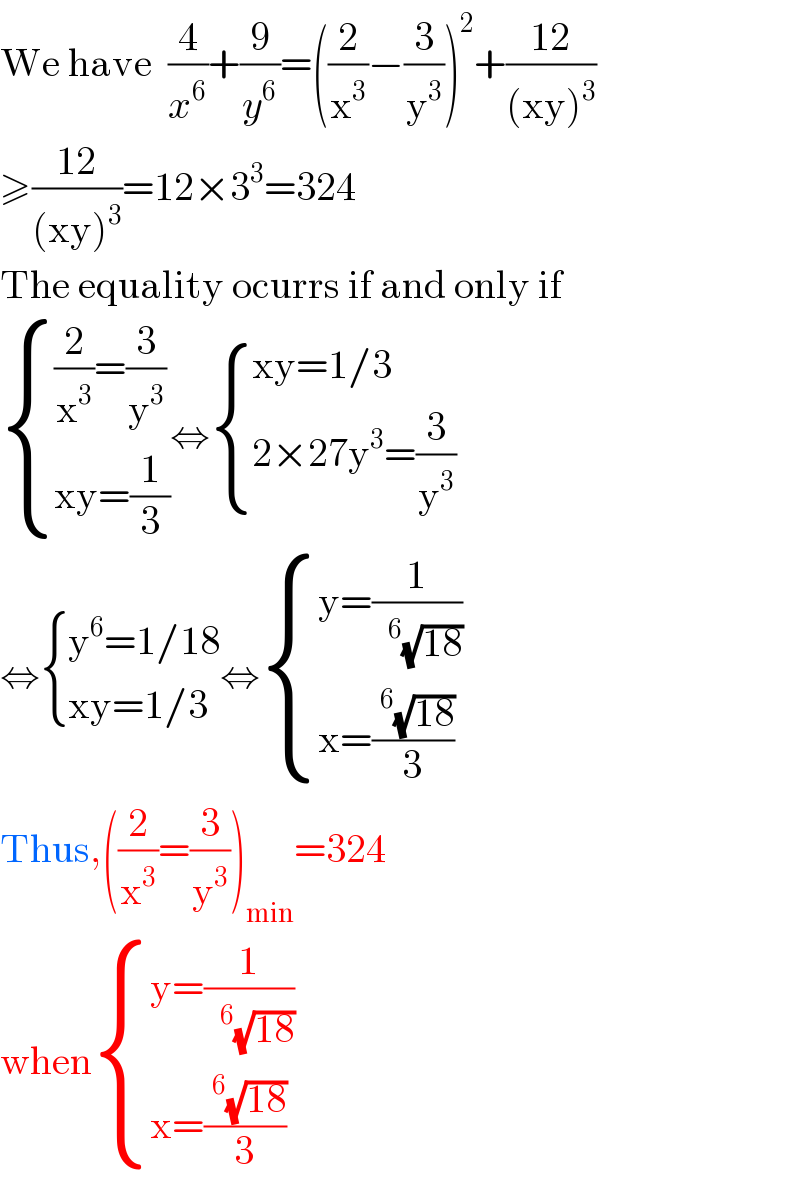Question Number 115733 by bemath last updated on 28/Sep/20

Answered by MJS_new last updated on 28/Sep/20
![y=(1/(3x)) ⇒ (4/x^6 )+(9/y^6 )=(4/x^6 )+6561x^6 (d/dx)[(4/x^6 )+6561x^6 ]=−((24)/x^7 )+39366x^5 =0 39366x^(12) =24 x^(12) =((24)/(39366))=(4/(6561)) ⇒ x=±(2^(1/6) /3^(2/3) ) ⇒ min=324](https://www.tinkutara.com/question/Q115751.png)
Commented by bemath last updated on 28/Sep/20

Answered by Olaf last updated on 28/Sep/20
![y = (1/(3x)) (x ≠0 otherwise (4/x^6 )+(9/y^6 ) doesn′t exist) f(x) = (4/x^6 )+(9/(((1/(3x)))^6 )) = (4/x^6 )+3^8 x^6 f is a even function. I suppose x > 0. f′(x) = −((4.6)/x^7 )+6.3^8 x^5 f′(x) = 0 ⇔ (6/x^7 )(3^8 x^(12) −4) = 0 ⇔ x = ((4/3^8 ))^(1/(12)) = x_1 f′(x) < 0 in ]0,x_1 [. f′(x) > 0 in ]x_1 ,+∞[. ⇒ it′s a minimum. x^6 = (√(4/3^8 )) = (2/3^4 ) = (2/(81)) y^6 = (1/(3^6 x^6 )) = (1/3^6 ).((81)/2) = (1/(18)) f(x) = (4/(((2/(81)))))+(9/(((1/(18))))) = 2.81+2.81 = 324](https://www.tinkutara.com/question/Q115749.png)
Commented by bemath last updated on 28/Sep/20

Answered by 1549442205PVT last updated on 28/Sep/20

